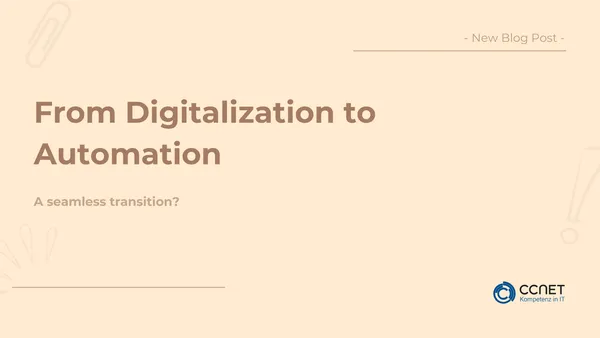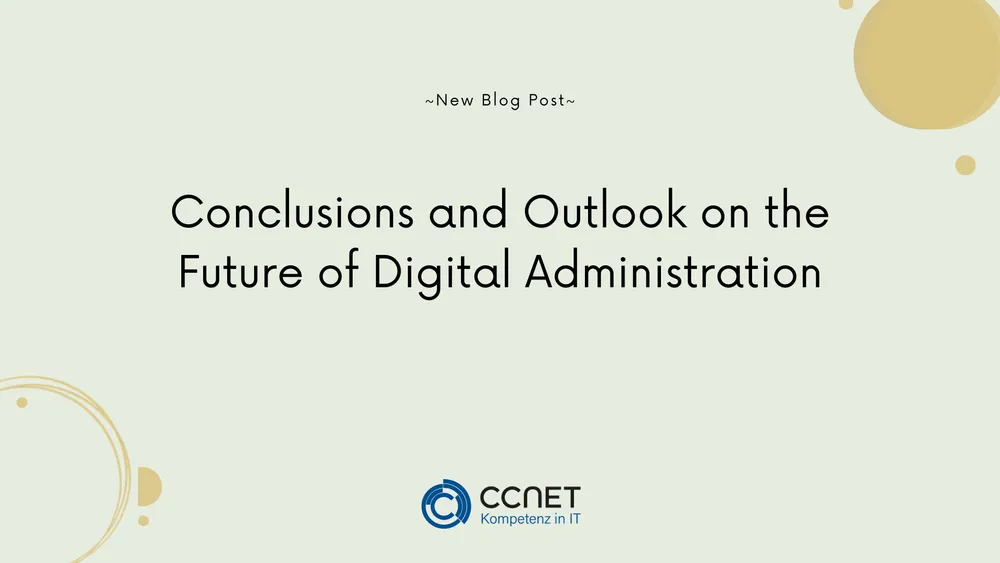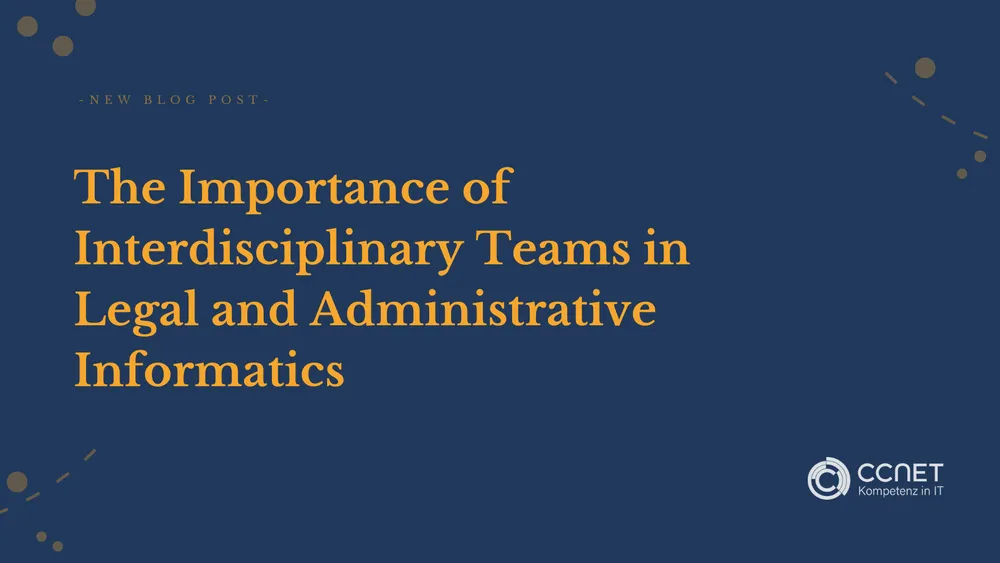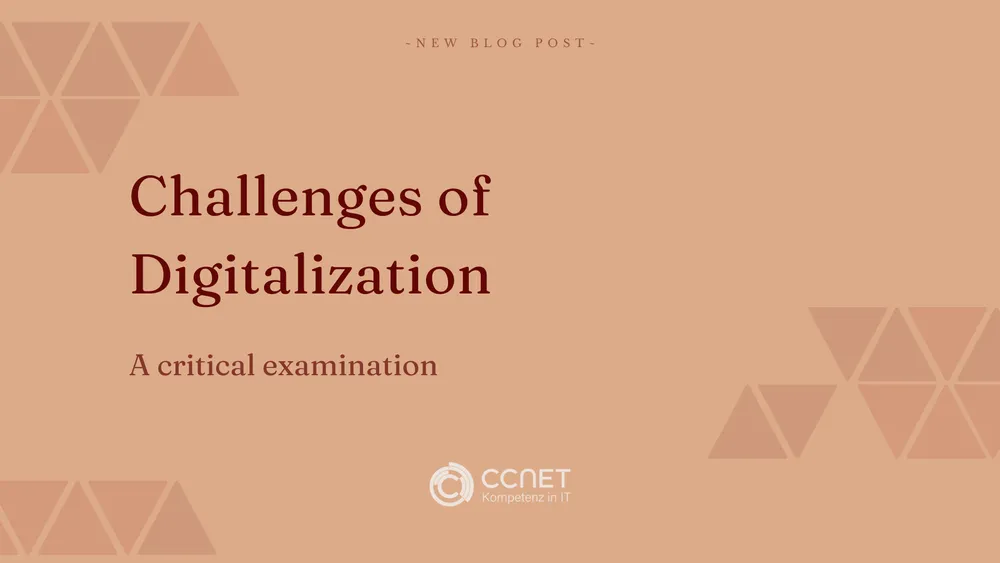
CCNet
Jul 22, 2024 • 3 min read

From Digitalization to Automation: A Seamless Transition?
The development from digitalization to automation in administrative processes represents a significant transformation that leads to profound changes in the structure and function of public administration. This transition is far from seamless and requires careful planning, adaptation to legal frameworks, and comprehensive training for involved stakeholders. Successful implementation also requires continuous evaluation and adaptation to evolving technological landscapes, as well as ongoing process optimization.
If you have any further questions, contact us: contact
Digitalization as a Prerequisite for Automation
Digitalization lays the foundation for automation by converting processes and data into a digital format that can be utilized by automation technologies. This transformation is crucial for enabling more efficient and error-resistant administrative processes. Germany and other countries have already launched comprehensive digitalization initiatives that range from electronic record-keeping to digital communication with citizens. The ongoing development of these measures will help modernize administration further and enhance the efficiency of the public sector.
The Transition to Automation
Automation in administration means the transfer of routine tasks to technologies that were previously performed by humans. This includes simple data entry to more complex decision-making processes. Automation uses the data provided by digitalization to make decisions faster and often more accurately than human operators. The use of artificial intelligence plays an increasingly important role, especially in processing and analyzing large volumes of data. This development has the potential to significantly boost administrative efficiency and improve citizen interaction.
Legal and Ethical Challenges
The automation of administrative processes is not without challenges. Legal frameworks must be adjusted to accommodate new technologies while protecting citizens' rights. In Germany, for example, fully automated administrative acts have been legally enshrined, indicating that the legislature recognizes and regulates automation. Nonetheless, the question of legal accountability, especially in the case of errors made by automated systems, remains a critical point. Various aspects, such as liability issues and transparency guidelines, must be carefully considered to ensure the fair and responsible use of these technologies.
Social Implications and Acceptance
Another critical topic is the social acceptance of automation. Administrative processes are often closely linked to personal circumstances in citizens' lives. Automation can be perceived as impersonal or even threatening if it is not clear how decisions are made. Therefore, transparency in automated processes is essential to build trust in the systems and allow citizens to understand, potentially challenge, and have a say in the decisions.
Conclusion
The transition from digitalization to automation in administrative processes offers significant opportunities for more efficient administration and can help use resources more effectively. However, legal, ethical, and social implications must be carefully weighed. A seamless transition is only possible if these aspects are developed and implemented in harmony. The future of public administration will largely depend on how well it is possible to employ these technologies for the public good and in accordance with democratic and legal standards. It requires a high degree of coordination and collaboration among various stakeholders to ensure that the implementation of these technologies appropriately considers citizens' needs.
What additional steps do you consider necessary to successfully transition from digitalization to automation in administration?
How is the transition from digitalisation to automation structured in administration?
Digitalisation forms the basis for automation by digitising processes and data. This data is then used by automation technologies to enable more efficient and error-resistant administrative processes.
What role does artificial intelligence (AI) play in the automation of administrative processes?
AI plays an important role, especially in the processing and analysis of large amounts of data. It helps to make decisions faster and more accurately, which can significantly increase the efficiency of administration.
What are the legal challenges of automation in administration?
Legal frameworks must be adapted to keep pace with new technologies. Liability issues and transparency guidelines are particularly critical in order to protect citizens' rights and prevent automated systems from making wrong decisions.
How does automation affect social acceptance?
Automation can be perceived as impersonal, especially when citizens do not understand how decisions are made. Transparency and the ability for citizens to understand and challenge decisions are therefore crucial to ensuring trust in automated systems.
What opportunities does the transition from digitisation to automation offer for public administration?
The transition can significantly increase the efficiency of administrative processes, make better use of resources and improve interaction with citizens by automating routine tasks and processing them more quickly.


